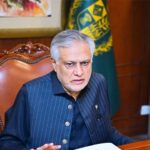The reality that nearly one tenth of the country’s total population is afflicted with some form of disability hardly supports government declaration that inclusive development is gaining pace. Rather, a recent news report published in this daily based on facts and findings simply belies it to the hilt.
At a recently held media training session titled ‘Disability and Digital Inclusion Training’ – Centre for Disabilities in Development or a CDD study only portrayed the bleak state of our disability management.
Most of the country’s 1.6 million physically challenged people are reported to have little or no access to digital services. In full agreement with the speakers, we believe, with such a significant number of people out of the box, the goal of building Smart Bangladesh by 2041 will be a demanding task.
At the same time, number of people under various forms of disabilities all over the world is on the rise. Approximate number of such people is around 100crore across the world, of which 80 percent are living in developing countries.
But the ground reality in Bangladesh is frustrating since the rights of disabled people to access civic facilities, particularly education and basic human rights merely remains in pen and paper.
Until and unless the people with special needs are provided with proper education, they would not be able to gain financial emancipation and their rehabilitation in the mainstream society in the true sense will be missing by a long chalk.
People with disabilities – (PWD) are particularly vulnerable to unemployment and poverty. And direct and indirect impacts of their unemployment finally lead to huge national economic loss. That’s why addressing the challenges as well as investing sufficiently, so to unlock hidden potentials of people with disabilities is a must.
Disability is a vital issue with respect to human rights and cannot be sidelined while considering national development of the country. Moreover, our social perception towards disability needs to be changed. Persons with disabilities can have positive contribution to the national economy if they are properly taken care of and provided sufficient opportunities.
In order to emerge as a developed country, government needs to aid and develop disabled peoples living in the country. Steps must be beefed up to empower them so that they can directly contribute to the national economy, as they do in many other countries in the world. Only then, we can ensure meaningful and inclusive development.
It is time for government authorities concerned to implement policies in place and be committed towards safeguarding the rights of disabled people for a more egalitarian society.




